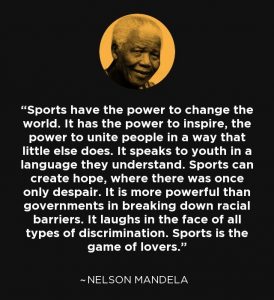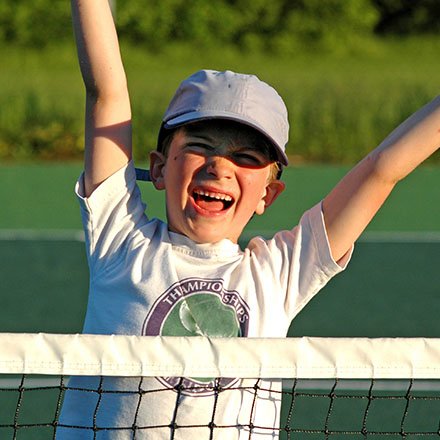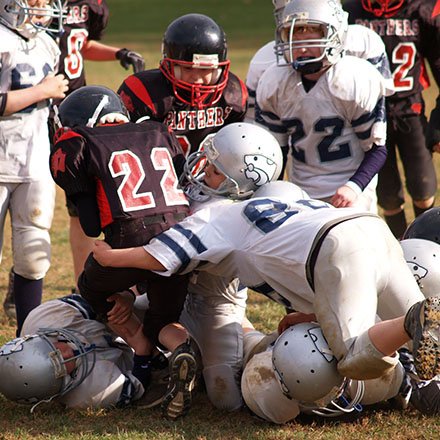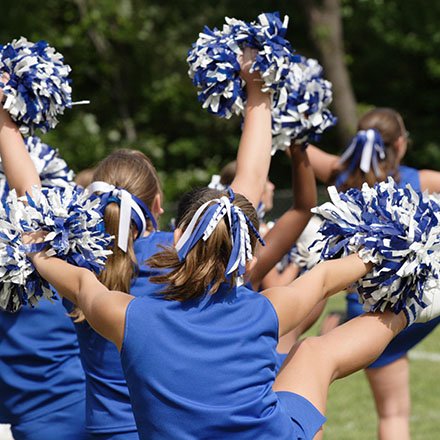Let’s Work Together – Using Sport as a Tool for Development
By Wayne B. Moss
Yesterday was a day of reflection for me following the conviction of former Minneapolis police officer Derek Chauvin. Like so many Americans, I’ve been grappling with my emotions and my personal experiences. Chauvin has been held accountable. It’s the beginning, not the end. It’s now time to address justice in all areas, not just policing, as a part of the healing process.
As the father of an 18-year-old African American male, I worry each time my son leaves the house. I think about George Floyd. Daunte Wright. Breonna Taylor, Ahmaud Aubrey. Philando Castile. Trayvon Martin. Michael Brown. Tamir Rice. Eric Garner. Oscar Grant. Freddie Gray. Atatiana Jefferson. Laquan McDonald. And the countless others that came before them too numerous to name.
We’ve been plagued with the virus of racism and COVID-19. Coronavirus has been a formidable foe that’s taken the lives of almost 570,000 Americans. Yet, in the aftermath of this historic case, it’s easy to lose sight of the power of sports. The impact individuals in sports made cannot be underestimated. Professional athletes used their influence to amplify systemic racism. They risked reputations and, in some cases, their livelihoods. Some said they should shut up and dribble. Others accused athletes of disrespecting the flag. Many fans lamented sports and politics shouldn’t be intertwined and turned off the television.
 WNBA players chose to link arms, raise fists, and kneel during the national anthem to show solidarity with Jacob Black – a 29-year-old black man shot seven times in the back by Minnesota police. The WNBA’s Renee Montgomery skipped the season to focus on social justice. The Milwaukee Bucks and Toronto Raptors and other teams, in an unprecedented move, chose not to play in protest of the killing of George Floyd. Athletes like LeBron James organized voter turnout that helped make the difference in the 2020 presidential election.
WNBA players chose to link arms, raise fists, and kneel during the national anthem to show solidarity with Jacob Black – a 29-year-old black man shot seven times in the back by Minnesota police. The WNBA’s Renee Montgomery skipped the season to focus on social justice. The Milwaukee Bucks and Toronto Raptors and other teams, in an unprecedented move, chose not to play in protest of the killing of George Floyd. Athletes like LeBron James organized voter turnout that helped make the difference in the 2020 presidential election.
While adults may debate if politics and sports mix, our young people are watching and listening to their athletic heroes. They look up to them. They chop it up with their friends about what athletes are saying and doing. They’re being inspired.
But it doesn’t stop there. It may seem that sport is just fun and games for young people. But done properly, it is a tool for youth development and provides lifelong benefits physically, socially, emotionally, cognitively and builds skills needed to be successful in the 21st century. Sport has a role in leadership development, conflict resolution, violence deterrence, drug prevention and gender equity. All young people deserve the right to play. They deserve the outcomes associated with participation. Our communities need it. The nation needs it.
Now more than ever, it’s important to understand the power of sports for young people and our country. Sports is as American as apple pie. It’s unique in that it is one of our most unifying forces. It creates a sense of community. It demonstrates all that is great about the human spirit. Sports can change, shape and save lives.
As we heal, let’s go to work in our area of influence. Let’s seek justice for young people. Let’s do right by them. Let’s removes barriers to play. Let’s ensure youth athletes are safe. Let’s ensure that they get the outcomes they deserve.




